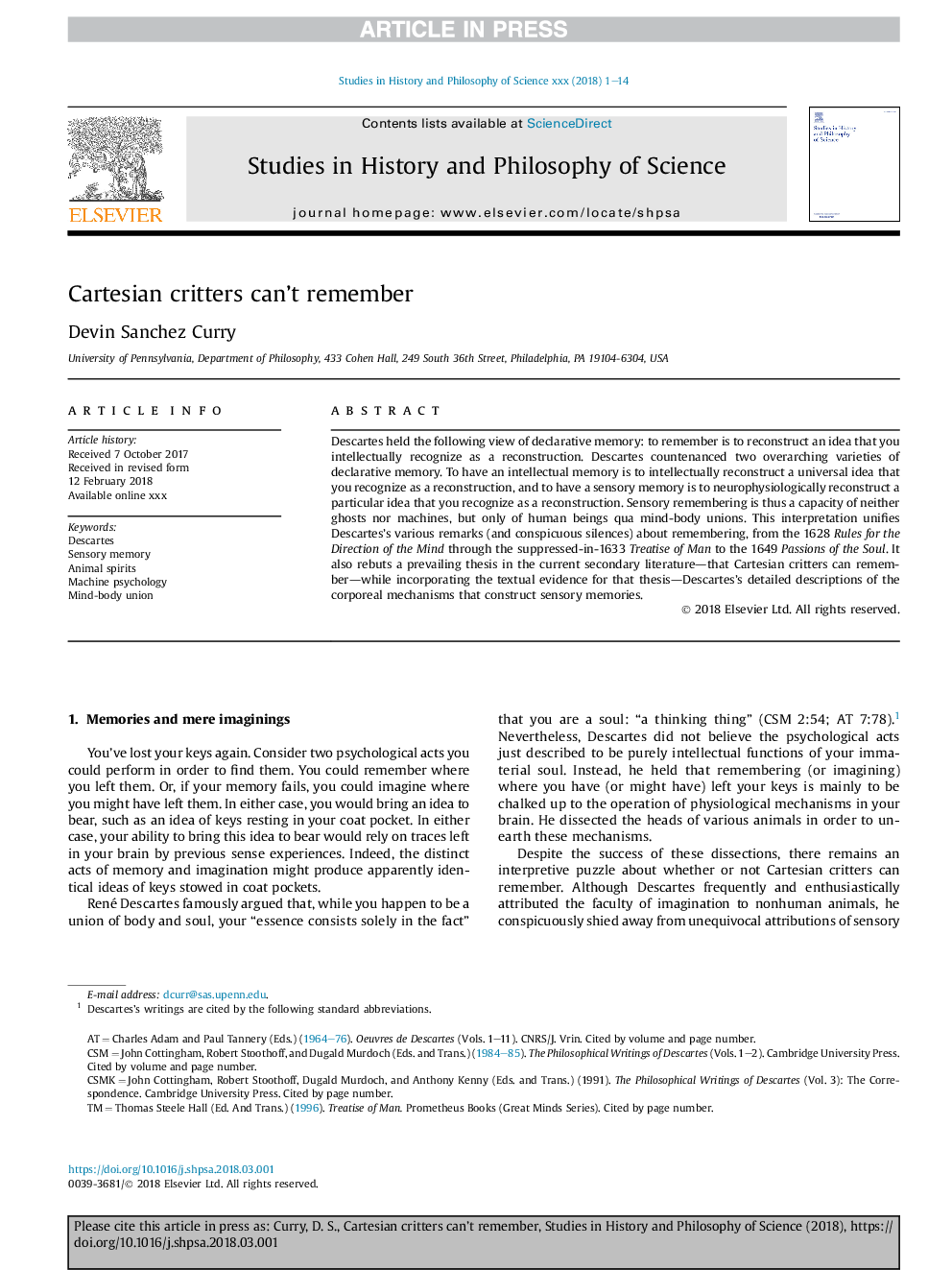| Article ID | Journal | Published Year | Pages | File Type |
|---|---|---|---|---|
| 7551570 | Studies in History and Philosophy of Science Part A | 2018 | 14 Pages |
Abstract
Descartes held the following view of declarative memory: to remember is to reconstruct an idea that you intellectually recognize as a reconstruction. Descartes countenanced two overarching varieties of declarative memory. To have an intellectual memory is to intellectually reconstruct a universal idea that you recognize as a reconstruction, and to have a sensory memory is to neurophysiologically reconstruct a particular idea that you recognize as a reconstruction. Sensory remembering is thus a capacity of neither ghosts nor machines, but only of human beings qua mind-body unions. This interpretation unifies Descartes's various remarks (and conspicuous silences) about remembering, from the 1628 Rules for the Direction of the Mind through the suppressed-in-1633 Treatise of Man to the 1649 Passions of the Soul. It also rebuts a prevailing thesis in the current secondary literature-that Cartesian critters can remember-while incorporating the textual evidence for that thesis-Descartes's detailed descriptions of the corporeal mechanisms that construct sensory memories.
Related Topics
Social Sciences and Humanities
Arts and Humanities
History
Authors
Devin Sanchez Curry,
